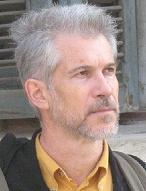CS Colloquium Series @ UCY
Department of Computer Science - University of Cyprus
The Department of Computer Science at the University of Cyprus holds research colloquiums and social hours approximately once weekly. All university students, faculty, and staff are invited to attend. Notifications about new and upcoming events are automatically disseminated to a variety of institutional lists.
If you don't receive these notifications, but want to get informed about upcoming colloquium announcements, you can do the following:
Colloquium Coordinator: Demetris Zeinalipour
Colloquium: System Architecture Implications of some Elementary Questions about m-learning, Prof. Thanasis Hadzilacos (Open University of Cyprus, Cyprus), Tuesday, April 7th, 2009, 15:00 - 16:00 EET.
The Department of Computer Science at the University of Cyprus cordially invites you to the Colloquium entitled:
System Architecture Implications of some Elementary Questions about m-learning
 |
Speaker: Prof. Thanasis Hadzilacos |
Abstract:
What is m-learning about? Is it about delivering information on smaller screens via lesser bandwidth? Is it about giving just-on-time and just-acceptable education to those unfortunate ones outside a classroom, distant from their classmates and a 'real' teacher? We shall argue in this presentation that hardware, software and communication properties and restrictions -valid and important computer science and technology research issues as they may be- are incidental to the deeper problems and opportunities that m-learning presents. We shall argue that m-learning provides an opportunity to bridge a classic gap in education, that between "library learning" and "field learning", a gap as old as the written word. "Content" is to education as "instruments" is to music: essential, indispensable, but a far cry from being the whole. Learning is not information presentation. An architecture for m-learning should be conceived and designed around complex learners' educational activities and not around content browsing -a vital but very simple learning activity. We shall discuss architectural issues and propose an architecture based on constructive m-learning activities. Is context awareness a desirable characteristic, a necessary one, something already achieved, or a pie in the sky? Is 'context' a stand-alone concept or is it context dependent? Does 'context awareness' for m-learning systems simply mean 'learner location dependence'? We shall argue that there are indeed m-learning system architectural implications of context awareness which depend on the answer we give to such questions.
Short Bio:
Professor of Information Systems, Open University of Cyprus (http://www.ouc.ac.cy) academic director of the graduate program in Information Systems, 55 years old. Until September 2007 he was Dean of the School of Science and Technology at the Hellenic Open Univer-sity (HOU, http://www.eap.gr) where he served (2000-2007) as associate professor of Software Engineering, directed (2003-2007) the Open and Distance Laboratory for Educational Material and Educational Methodology, the graduate course on Information Systems (2003-2007) and the undergraduate Computer Science course (2001-2003). Educated at Harvard, USA (1971-76), he had substantial industrial experience before joining Computer Technology Institute (http://www.cti.gr) in 1986, where he continues as a researcher with the responsibility of the Educational Technology and the e-Learning Sectors and R&D Unit III "Applied Information Systems" (http://www.cti.gr/RD3). He has taught at the Universities of Patras and Thessaly before joining the Hellenic Open University in 2000. During 1996-2001 he designed and managed the Greek national project "Odysseia" (http://odysseia.cti.gr/) for the utilization of Information and Communication Technologies in secondary education. He has served as a member of the Council of Europe working group for Teaching and Learning in the Communication Society (2002-2004) and the Greek national representative to E.U. DG Education and Culture for building the European portal on educational opportunities (2002-2005). He has published over 80 papers in international journals and conferences, including a chapter on "Teaching and Learning in the Communication Society" published by the Council of Europe. He has given over 60 invited talks and presentations in scientific conferences, training seminars, university seminars, and professional or technical events. He has coordinated, directed and participated in over 40 research and development projects funded by the European Commission (IST, Esprit, Brite-Euram, eContentplus, Lingua, Minerva, e-Learning), the three Community Support Framework Programs for Greece, private companies, the Greek Secretariat for R&D and the Greek Ministry of Education. His research interests are related to education and to large-scale information and database systems and in particular system design for non-standard application areas such as education, GIS, and multimedia. His real interest is people, and he is currently studying theology at HOU.
Sponsor: The CS Colloquium Series is supported by a generous donation from  |